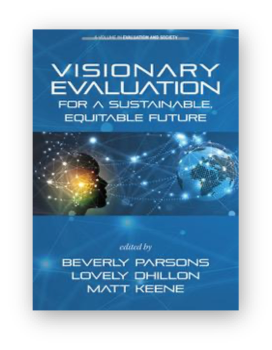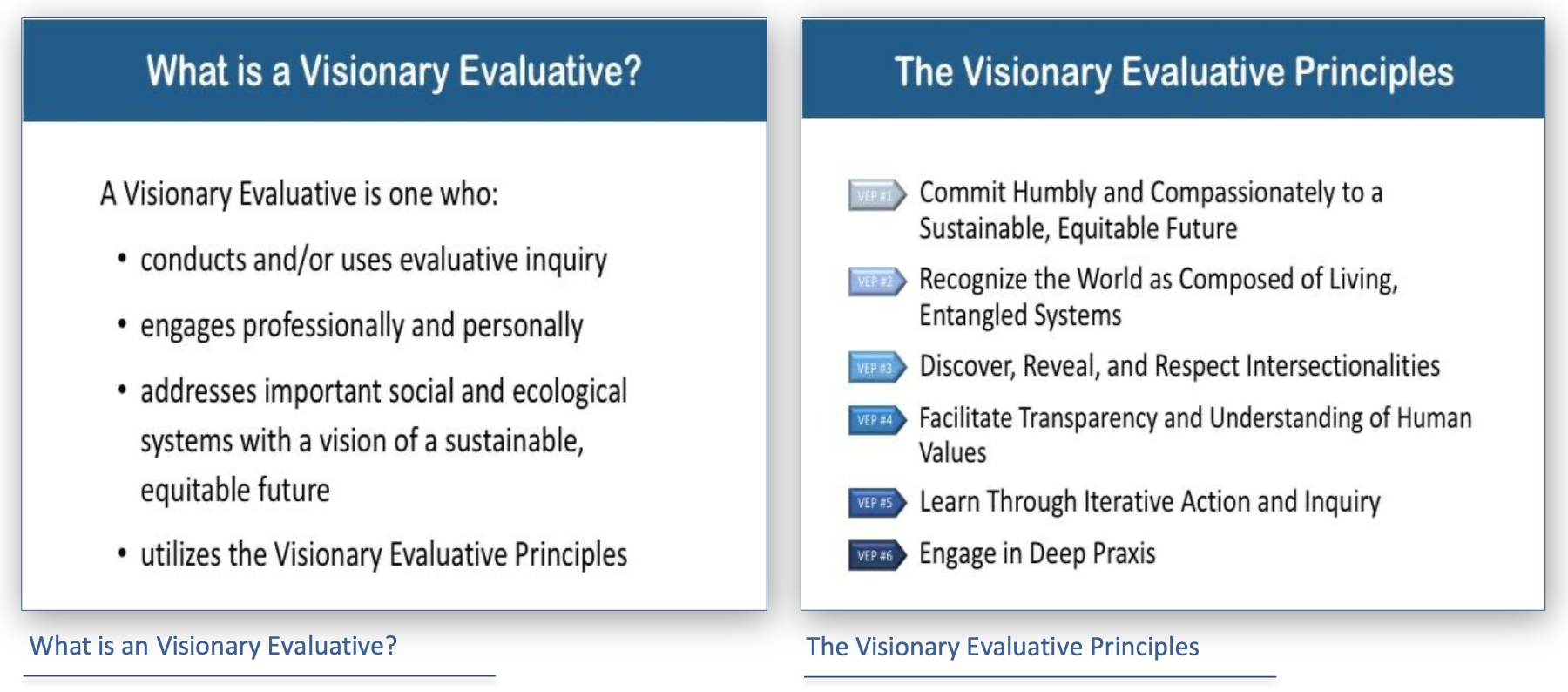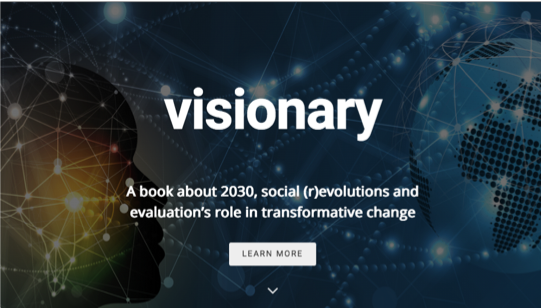
I’m Jeanne Ayers, author of Health: Building Our Power to Create Health Equity, in the new book, Visionary Evaluation for a Sustainable, Equitable Future.
In my day job, I’m the State Health Officer, Division of Public Health for Wisconsin. Public health is what we do collectively to assure the conditions in which we can all thrive. Achieving this vision requires intentionally advancing health equity and sustainability through a social and ecological systems approach grounded in evaluative inquiry and the principles of Visionary Evaluatives.
Eval2019 was my first time attending an AEA conference. I made presentations related to health equity, environmental sustainability, and being a Visionary Evaluative. I was impressed and encouraged by the rigor and thoughtfulness of the AEA community related to the tough issues of our world today. I realized Visionary Evaluatives may be uniquely positioned to play an important role in equipping us to adopt a systems approach and creating the change we are seeking.

My Eval2019 experience increased my commitment to the importance and use of the Visionary Evaluative Principles. I’m especially focused on humbly and compassionately valuing equity and environmental sustainability, systems thinking, intersectionalities, and facilitating conversations about values among diverse groups and individuals.
I’ve worked for many years to advance health equity through my current position in Wisconsin, my previous position as the assistant commissioner and chief health equity strategist of the Minnesota Department of Health, and as a community organizer for social justice and racial equity. As a visionary evaluative practicing in the health field these are lessons I have learned:
Lessons Learned:
• Our health is created through a complex system or set of systems encompassing social, political and natural environments that intersect and influence one another.
• The path to action is asking questions to identify patterns within the systems, what sustains the patterns, and what we can do to change the patterns. Inquiry questions can include:
– What is working?
– What policies, practices, processes create inequities with our organizations and more broadly?
– Where are structural inequities and structural racism creating inequitable health outcomes?
– Who benefits?
– What and whose values, beliefs and assumptions are creating structural inequities and racism?
• Look for patterns of connection between systemic disadvantage and patterns of health outcomes and health inequities.
• To create health and environmental sustainability we must build our collective “capacity to act”, that is, power. We can build power (capacity to act) through three practices:
– Organize people: Develop accountable relationships and partnerships that align interests and directly impact decision makers.
– Organize narrative: Build public understanding and public will to support action that reflects health equity and sustainability.
– Organize resources: Consider the impact of all policies on health and sustainability to shift the way resources, processes, and systems are structured to achieve aims.

Rad Resources: Learn more about being a Visionary Evaluative here.
• See how Minnesota is changing the narrative around health equity here and here.
• Check out Foundational Practices for Health Equity.
• Here is a resource for talking to legislators about health equity.
• Here is a guide for conducting a health equity data analysis.
The American Evaluation Association is celebrating the publication of Visionary Evaluation for a Sustainable, Equitable Future, an outgrowth of the Evaluation 2014 conference theme with the same name. The contributions all this week to aea365 come from editors and authors of the book. Do you have questions, concerns, kudos, or content to extend this aea365 contribution? Please add them in the comments section for this post on the aea365 webpage so that we may enrich our community of practice. Would you like to submit an aea365 Tip? Please send a note of interest to aea365@eval.org. aea365 is sponsored by the American Evaluation Association and provides a Tip-a-Day by and for evaluators.

